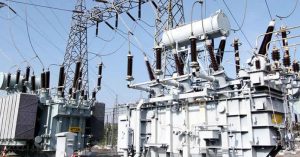 Nigeria faced another power grid collapse on Monday, marking the sixth occurrence in 2024.
Nigeria faced another power grid collapse on Monday, marking the sixth occurrence in 2024.
The collapse resulted in a significant drop in electricity generation, plummeting from 2,583.77 megawatts to 64.7MW before being restored later in the day.
The Transmission Company of Nigeria attributed Monday’s grid collapse to a fire incident, although it has consistently pointed to gas shortages and power infrastructure vandalism as the primary causes of grid collapses in Nigeria. With an average electricity generation of 4,000MW for an estimated population of 200 million citizens, the current situation is unsustainable due to ongoing challenges such as gas supply constraints, transmission infrastructure vandalism, and liquidity crises.
Data from the Independent System Operator, a division of the Transmission Company of Nigeria, revealed that only one electricity generation company, Ibom Power, was operational during the grid collapse on Monday morning. Power generation on the grid further declined to 44.5MW at 4 am before gradually rising to 132.29MW an hour later.
The grid collapse was confirmed by the Jos Electricity Distribution Company, which informed its customers about the loss of power supply from the national grid. Economic activities in the South-East region were also affected as the Enugu Electricity Distribution Company experienced a total system collapse in its network.
The Enugu Electricity Distribution Company apologized to its customers in Abia, Anambra, Ebonyi, Enugu, and Imo states for the outage caused by the system collapse. The company expressed hope that power supply would be restored once the Transmission Company of Nigeria completed the necessary repairs.
This grid collapse follows a similar incident reported on February 4, 2024, when the national grid collapsed, resulting in widespread blackouts across the country. Power distribution companies attributed the collapse to issues within the grid managed by the Transmission Company of Nigeria.
In response to the recent collapse, the Transmission Company of Nigeria announced that the national grid had been fully restored after a fire incident at the Afam power generating station. The fire caused a partial disturbance of the grid, leading to a sudden loss of generation capacity.
Vandalism of transmission infrastructure has also been a recurrent issue in Nigeria. On February 28, 2024, the Transmission Company of Nigeria reported that vandals destroyed Tower 70 along its 330kV Gwagwalade-Katampe transmission line in Abuja. This act of sabotage severely impacted power supply, reducing the volume of power into Abuja by 250 megawatts.
The Transmission Company of Nigeria has mobilized engineers to repair the damaged towers and associated equipment. They have emphasized the importance of vigilance in combating vandalism and urged the public to report any suspicious activities around power equipment to security agencies or the nearest TCN offices.
The Nigerian power sector continues to grapple with challenges related to gas shortages, transmission infrastructure vandalism, and system collapses. Efforts are being made to address these issues and ensure a stable and reliable power supply for the country’s population.

